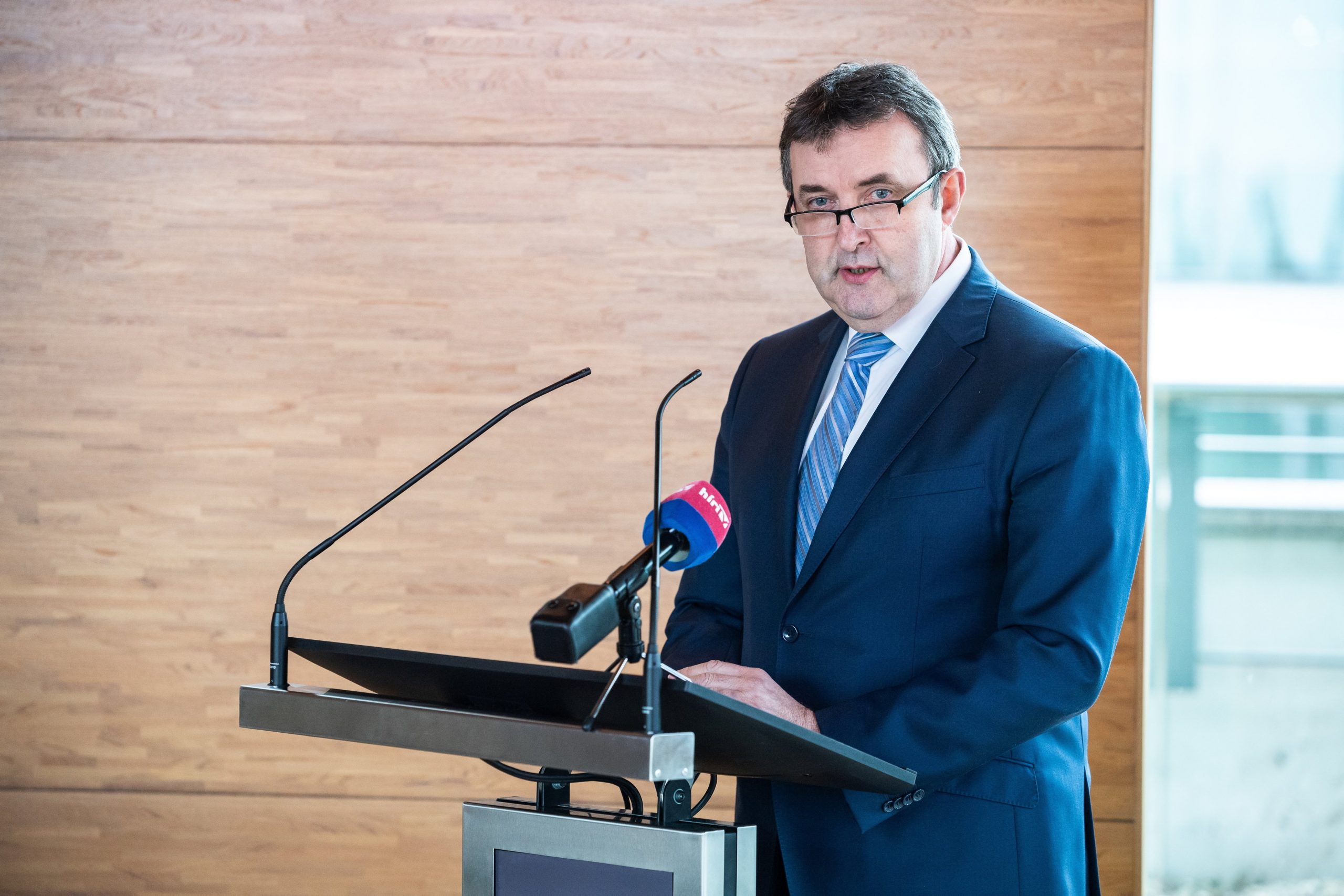“The foundations of bilateral cooperation cannot be destroyed by any political campaign or occasional disagreements on economic issues,” Hungarian Prime Minister Viktor Orbán spoke optimistically about relations between Germany and Hungary during his visit to Berlin. He addressed an economic forum about the challenges facing Europe and explained “the Hungarian model”.
Hungarian Prime Minister Viktor Orbán held talks with the incumbent and the previous German Chancellors, Olaf Scholz and Angela Merkel in Berlin on Monday, and attended an economic forum. Viktor Orbán said that his two-hour-long meeting with Scholz was fruitful, they spoke about every difficult and complex topic, and “everyone could be happy” with its outcome.
@PM_ViktorOrban met w/ @Bundeskanzler and held talks w/ Angela Merkel in Berlin. We Hungarians view some issues from a different perspective than our German counterparts, but we strive for close coop. b/w our nations. It is key to find common ground in these hard war-times. pic.twitter.com/4I5Ev0LJAt
— Balázs Orbán (@BalazsOrban_HU) October 10, 2022
There were political reasons for the fact that since 2010 Hungary had managed crises – including the 2008-2009 global economic crisis, the migration crisis, and the COVID crisis – successfully, the Prime Minister said at the economic forum.
Viktor Orbán recalled that there was a debate in Europe during the global economic crisis about whether the crisis was a cyclical or structural crisis. He reminded that he never accepted the common interpretation that the crisis was cyclical, he regarded it as structural due to the fact that Europe will continually lose against Asia in terms of GDP, markets, and technological competition unless it implements changes. Hungary’s answer after 2010 was pursuing profound structural reforms.
Had a meeting today with the representatives of German companies active in Hungary. I assured them that they can count on our support. We may have disagreements from time to time, but not as many as they have with their own government back home. pic.twitter.com/7zpDYsAK5w
— Orbán Viktor (@PM_ViktorOrban) October 10, 2022
He described the Hungarian model as conservative regarding social policy, which resembles the era of the late German Chancellor Helmut Kohl.
“The government thinks in terms of a workfare society, with the family at its center,”
Viktor Orbán said, adding that the government also built upon national pride, and would like this to be based increasingly on the nation’s performance.
“In Hungary, there is no multiculturalism,” the Prime Minister stressed, adding that if Hungary does not protect its borders, the single internal market of the European Union could collapse.
One of the most important elements of the economic foundations of the Hungarian model is a low level of taxation, according to the Prime Minister. “Hungary is the only country in the world with a flat-rate personal income tax, there is no inheritance tax, and the corporation tax, too, is low at 9 percent,” he pointed out.
Speaking about Hungary being an attractive investment environment for German businesses, he stressed that “there are no surprises in the Hungarian economy – we are able to tell precisely what medium- and long-term plans the government has in each sector”. Viktor Orbán added that Hungarian-German economic cooperation is fundamentally based not on economic foundations, but is cultural in its nature. “The foundations of bilateral cooperation cannot be destroyed by any political campaign or occasional disagreements on economic issues,” he stressed.
Speaking of the challenges Europe is facing, Viktor Orbán said that in the period ahead we needed political security, energy security, and physical security. “Political security is guaranteed by the government’s stability, physical security can be guaranteed, among others, by the fact that Hungary will continue to remain an island of peace, while it is an important part of energy security that the country has enough gas reserves for six months,” he explained.
Featured photo via Miniszterelnöki Sajtóiroda/Fischer Zoltán
!function(f,b,e,v,n,t,s)
{if(f.fbq)return;n=f.fbq=function(){n.callMethod?
n.callMethod.apply(n,arguments):n.queue.push(arguments)};
if(!f._fbq)f._fbq=n;n.push=n;n.loaded=!0;n.version=’2.0′;
n.queue=[];t=b.createElement(e);t.async=!0;
t.src=v;s=b.getElementsByTagName(e)[0];
s.parentNode.insertBefore(t,s)}(window,document,’script’,
‘https://connect.facebook.net/en_US/fbevents.js’);
fbq(‘init’, ‘228770251004422’);
fbq(‘track’, ‘PageView’);
(function(d, s, id) {
var js, fjs = d.getElementsByTagName(s)[0];
if (d.getElementById(id)) return;
js = d.createElement(s); js.id = id;
js.src=”https://connect.facebook.net/en_US/sdk.js#xfbml=1&version=v2.12″;
fjs.parentNode.insertBefore(js, fjs);
}(document, ‘script’, ‘facebook-jssdk’));

Leave a Reply